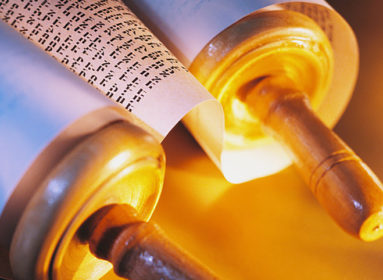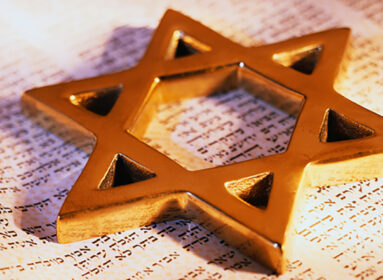
By Shlomo Riskin
Three times each day, we begin the Amidah prayer with the words, “Blessed are You, Hashem, our God and God of our ancestors, the God of Abraham, the God of Isaac, and the God of Jacob…” Why the apparent repetition in addressing the Almighty? Why do we not simply say, “Blessed are You, Hashem, our God…?”
Rabbi Yisrael Ba’al Shem Tov (d. 1760, Ukraine), founder of the Hasidic tradition, explained that it is preferable and appropriate for a person to attempt to discover God on one’s own and to establish a personal relationship with Him. At the same time, however, one should also relate to God as did our ancestors.
Certainly, if a person were to develop his or her own unique contact with God, that devotion would be genuine and spontaneous, rather than mechanical and formalized. But such a search is inevitably fraught with setbacks and disappointments. And what if the Almighty still remains elusive, even after a lengthy quest?
The search for God is the underlying theme of Jacob’s life. This was to be a search for God unique to him, not reliant solely on the discoveries of God made by Abraham and Isaac, respectively. Most importantly, Jacob had to feel worthy of God’s “friendship” in order to enter into a fellowship with the Divine.
Thus, in order for Jacob to find his way to God, he must first come to grips with his own personality flaws, with his own inner and truest self and identity, and with the image of God within himself! And that would require a fateful confrontation with his arch-nemesis and twin brother, Esau. He must somehow atone for his sin of deceitfully having stolen the “blessings” away from Esau. He can only meet God with a clear conscience!
Will Esau stand in the way of God’s promise to Jacob and his seed? Can Jacob atone for the guilt he feels vis-à-vis Esau, and exorcise the jealousy he feels towards his brother, who had been the beneficiary of Isaac’s favor? Addressing the Almighty, Jacob prays to the “God of my father Abraham and the God of my father Isaac…’ [ibid., 32:10], not yet able to mention “my God.”
Because of what follows, it becomes clear that the wedge between Jacob and himself – indeed, between Jacob and God – is Esau. Only after Jacob can successfully separate himself from Esau will he be able to confront his own God.
On the night before he is to meet his brother in the flesh after a twenty-year estrangement, the Torah records how Jacob remained alone and wrestled with an unidentified stranger over whom he prevailed. Our Sages identify this stranger as the angel of Esau. Fascinatingly, Rabbi Samson Raphael Hirsch (1808-1888, Germany) suggests that it may well have been the Esau within Jacob who is haunting the patriarch with guilt and jealousy.
Jacob receives the victory name Yisrael (Israel) from the stranger; he has prevailed against men and God. In what way? He has finally confronted the twin personality within himself: the grasping, cheating Esau he desired to become in order to obtain his father’s favor and achieve momentary materialistic enjoyment, and the Esau (and Esau-ism) from within himself.
Hence, he is ready to take the wealth he received from Laban during his Esau stage and return it to Esau when they meet on the morrow: “take my blessing (‘which I received under false pretenses’,)” he will say [ibid., 33:11] – and once he repents and returns his ill-gotten gain, Jacob is ready to accept himself.
Only after he has successfully wrestled with the stranger – exorcising the pain and guilt created by his jealousy and deception – is Jacob finally rewarded by seeing God face to face.
And after his mastery over the angel of Esau, Jacob calls the place of the encounter Peniel, “because I have seen the Lord face to face, and my soul has been saved” [ibid., 32:31]. Jacob exorcised Esau – and in the process found both himself and his God. His struggle and search has ended in victory. The true Jacob has triumphed over himself and has become “Isra-el”.
Immediately afterward, the Torah records that Jacob “came in peace [shalem] to the city of Shekhem” [ibid., 33:18] “Shalem” can also be understood as “complete.” He is now, finally, his whole, independent self.
And so he erects an altar to his own God, calling it Kel Elokei Yisrael’ [ibid., v. 20], “God, the God of Israel.” Finally God is not only the God of his grandfather and of his father, but also the God of Israel, the God of the “complete” Jacob, his own personal God, Whom he has discovered after many travails and much pain.
The circle is thus complete; Jacob has succeeded in his search for his true self and only then, for his own God. And because of that search, we pray in the Amidah to God as encountered by each of our patriarchs. Standing on the shoulders of (spiritual) giants, we pray to the God of Abraham, the God of Isaac, and the God of Jacob, reminding us of our need to pursue our own personal discoveries of ourselves and then of our own personal God!
Rabbi Shlomo Riskin is chancellor of Ohr Torah Stone and chief rabbi of Efrat, Israel.








 Southern New England Jewish Ledger
Southern New England Jewish Ledger










